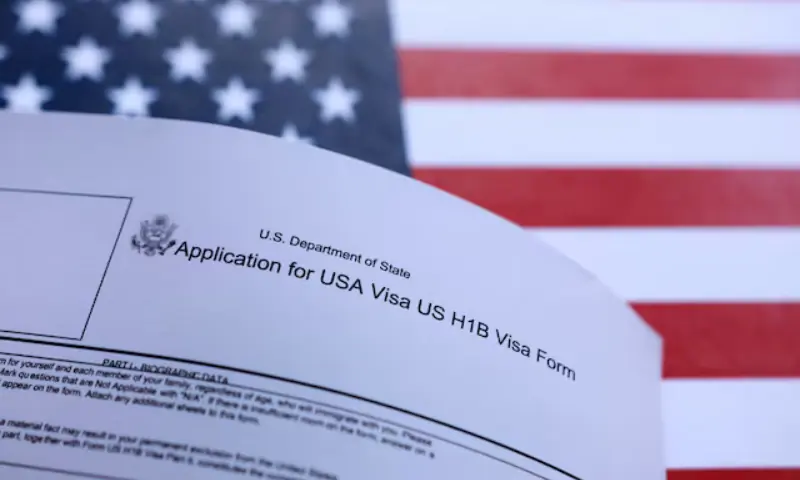San Francisco — A coalition of unions, employers, and religious groups has launched a legal challenge against U.S. President Donald Trump’s decision to impose a $100,000 fee on new H-1B visas for highly skilled foreign workers. The lawsuit, filed Friday in federal court in San Francisco, is the first to contest the president’s proclamation announced two weeks ago, which aims to sharply increase costs for companies hiring foreign talent under the program.
The plaintiffs — including the United Auto Workers union, the American Association of University Professors, a nurse recruitment agency, and several religious organizations — argue that Trump exceeded his legal authority. They say the U.S. president does not have the power to override the law that created the H-1B visa program or to impose unilateral fees and revenue mechanisms, which they contend are reserved for Congress.
Trump’s proclamation requires employers sponsoring new H-1B workers to make an additional $100,000 payment before the visa holder can enter the United States. The order does not apply to existing H-1B holders or pending applications filed before September 21. The administration says the move is intended to curb abuse of the system by companies seeking lower-cost foreign labour and to protect American jobs and wages.
White House spokeswoman Abigail Jackson defended the order, calling it a lawful step to “discourage companies from spamming the system and driving down American wages, while providing certainty to employers who need to bring the best talent from overseas.”
The H-1B program allows U.S. employers to hire foreign workers in specialized fields, particularly in technology. Employers currently pay between $2,000 and $5,000 in various application fees depending on company size and other factors. Each year, 65,000 visas are issued, with an additional 20,000 reserved for advanced degree holders. India accounts for 71 per cent of approved visas, followed by China at 11.7 per cent.
Critics of the program argue that companies use it to replace American workers with cheaper labour. Supporters, including many major corporations, say it is essential to fill skill shortages in science, technology, and other sectors. Trump has justified the fee hike by claiming that large numbers of lower-wage foreign workers have undermined the program’s integrity, discouraged Americans from entering STEM fields, and created national security concerns.
The plaintiffs argue that the order effectively turns the visa process into a “pay to play” system, with exemptions controlled at the discretion of the Secretary of Homeland Security — a structure they say invites selective enforcement and potential corruption. They also contend that the Department of Homeland Security, U.S. Citizenship and Immigration Services, and the State Department implemented the policy without proper rulemaking procedures and failed to consider its impact on innovation.
The case is expected to set up a significant legal battle over the scope of presidential power on immigration and the future of the H-1B program, which has long been central to U.S. tech and research industries.

